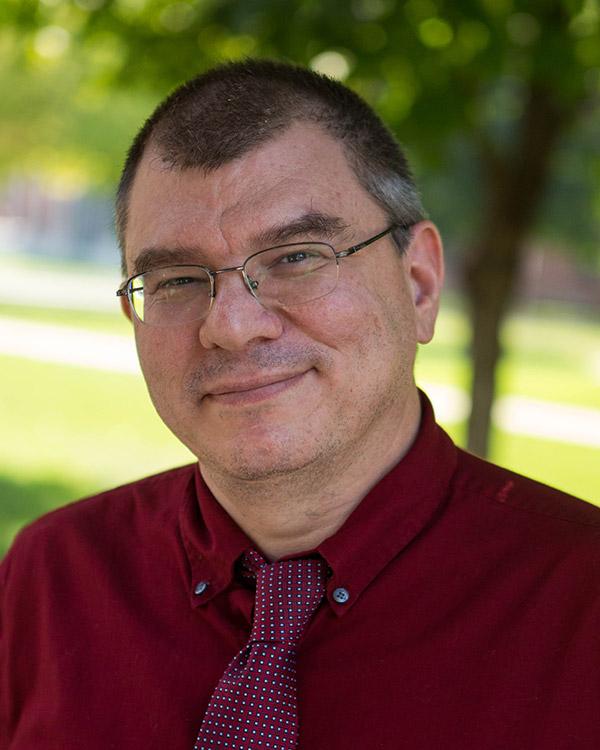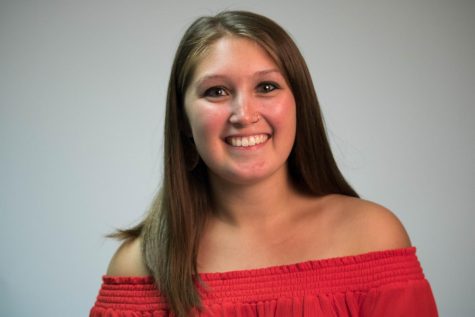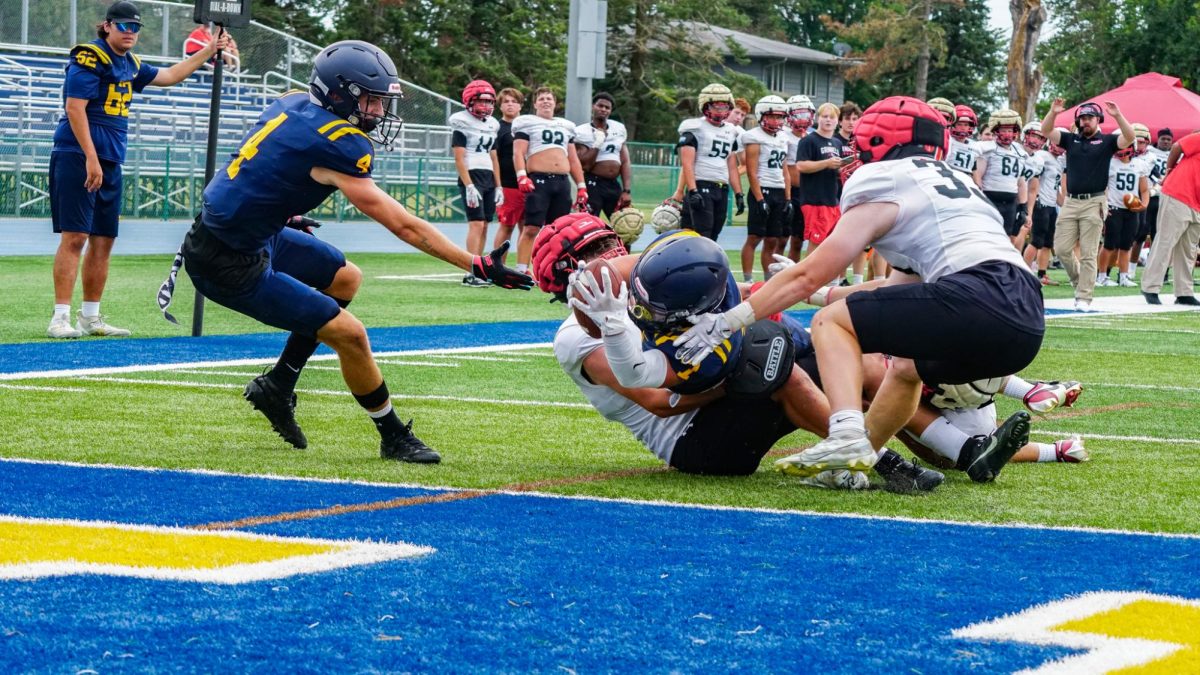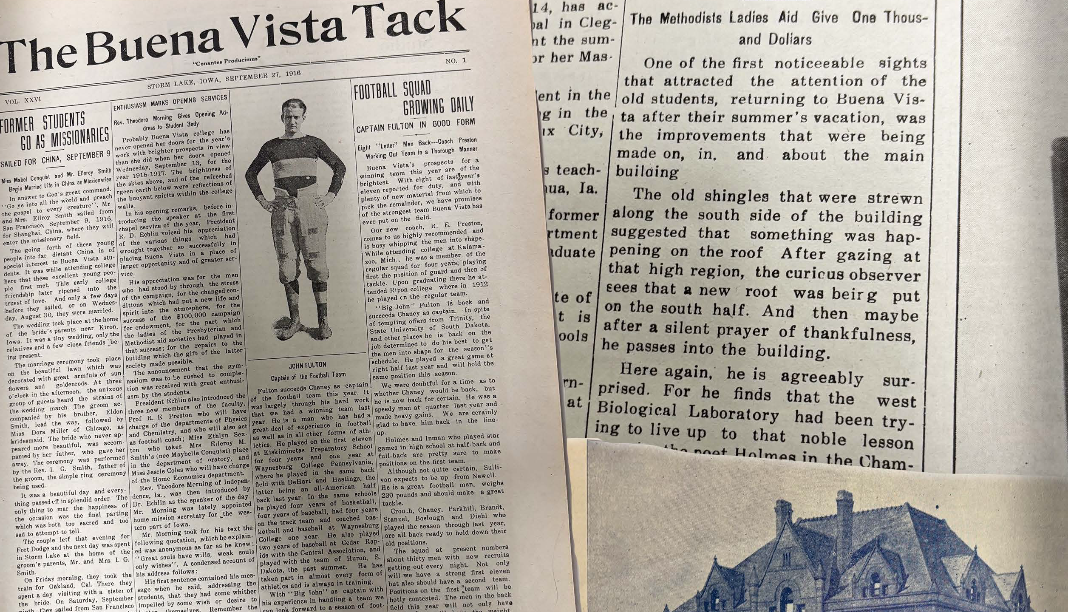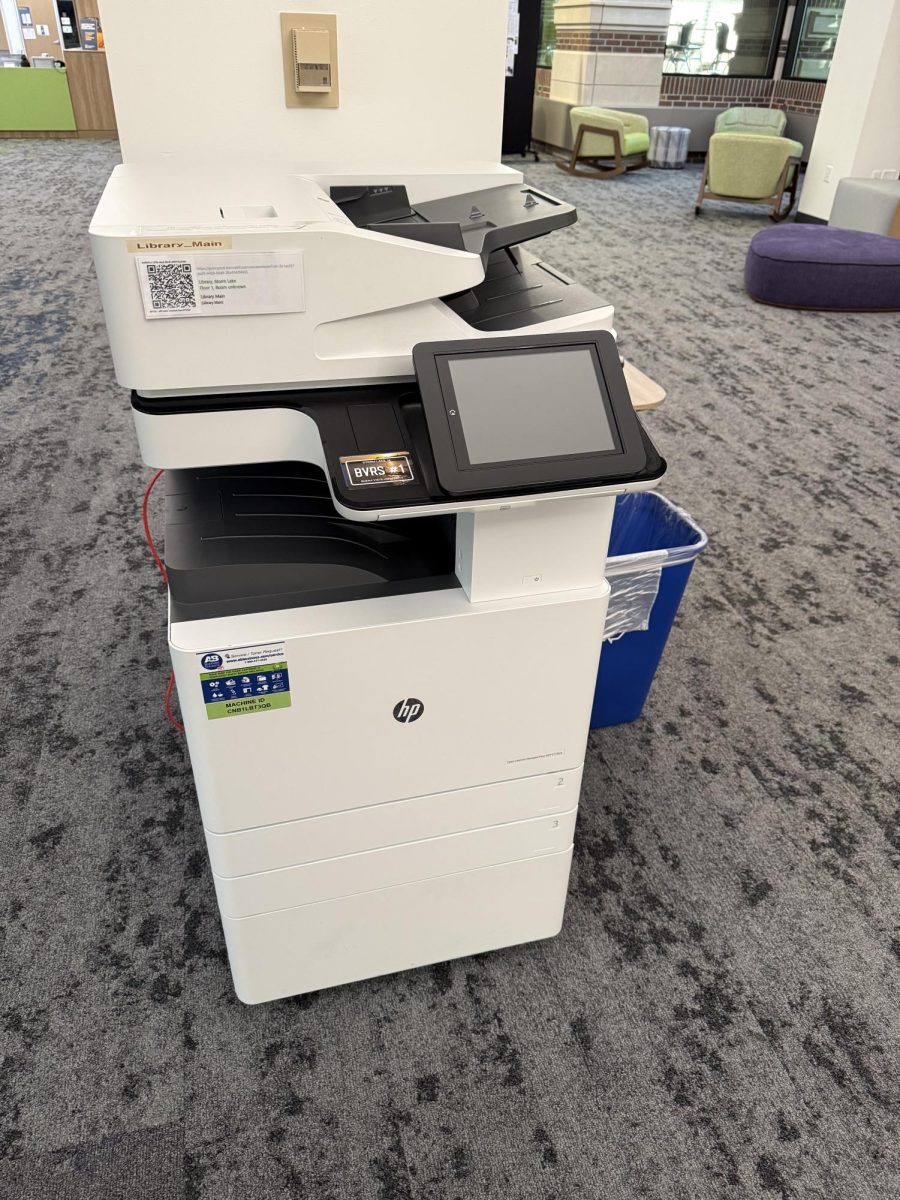Refilling the Gas Tank: Wythe Finalist Dr. Shawn Stone
May 11, 2019
*This article is the first in a series of features of the 2019 Wythe Award finalists.
The office is littered with student projects; everything in sight is gadgets and gizmos. On the right wall is a white board with equations that look like they are written in a different language, each symbol connecting to the next. On the desk, in the far right corner, tucked in by the window, sits a machine he calls a “raspberry pi,” a credit-card sized computer used for a parallel programming class. Next to that are larger “techie toys” only those with the required background knowledge could begin to comprehend. Adjacent to the desk is a wall overflowing with books; books of endless colors and densities, each one begging for attention. On the far left side of the office, a table is buried under a crumbling mountain of files and paperwork. Finally, in the corner by the door sits a sleek, black guitar, sitting on a plain, simple stand. Although it may not seem like it, this office tells the story of a professor who is searching for something to be “fuel for my gas tank.”
Dr. Shawn Stone, professor of physics and computer science and interim dean for the school of science, has been looking for something to fill the tank that 20 years of teaching has left running low. On Mar. 3, he was named as one of the four finalists for the George Wythe Award.
The George Wythe award is the highest honor for Buena Vista University faculty. It is presented to the faculty member who displays excellence in teaching within their field. The recipient of this prestigious honor receives a $30,000 cash award and a sabbatical in which they may seek professional development and/or conduct research.
Paul and Vivian McCorkle were the couple that created the Wythe award “Which would reward (the recipient) for being a good teacher,” said Paul McCorkle in a video interview. “It was not to be an award for longevity. It was not an award for being one of the ‘good old boys.’ It was about asking ‘How can we make better teachers?”
“Starting in the fall, people nominate faculty for the George Wythe Award,” said Professor Jerry Johnson, chair of the George Wythe Award selection committee. “We collect those nominations, then the committee gets back together and looks at all the nominations, then we decide, of those nominations, who the final four will be.”
Once the final four are selected they must ask 10 alumni, other faculty, and/or current students to write a letter of recommendation. Once those letters are received, the committee meets to deliberate once again and reach a final decision. When one individual is selected, the laureate’s name is brought to the president’s office. With President Merchant’s approval, the decision becomes final.
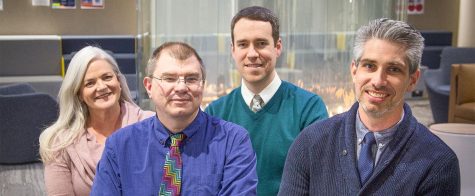
“I didn’t know what impact I had made,” said Dr. Stone, reflecting on his recent nomination. “It just reminded me that I am where I belong and that I am worthy of this place.”
Dr. Stone, through looking at the letters he requested from alumni, heard how much his classes, and the work he put into the program, made a difference in their lives.
“I’ve had students tell me that the MCAT was a joke because they got through my physics course,” said Dr. Stone. “I was surprised to see that I made a difference.”
“He’s very good about not acting like he knows everything,” said junior physics major, London VanHorbeck. “It’s nice, as a physics major, to see a professor make those mistakes because then you’re like, ‘Okay, so he’s making these mistakes. It’s okay that I’m making mistakes.’ But really, when you take so many classes with him, you start to recognize all the stuff that he does do for his students, and how much time he puts in, so that people can learn the material and understand the material. And he tries really hard to make sure everybody succeeds.”
Dr. Stone loves to have fun with his students whether it be working on projects together outside the classroom, creating one giant raspberry pi, or playing guitar for his class. He learned to play guitar on his own and now writes his own pieces and plays them in class to provide brain breaks.
“He’ll bring the guitar into class as a demonstration for sound and stuff. Sometimes he just stops class and he’ll be like, ‘You guys want to hear a joke?’ The other day, he was like, ‘If you’re singing in the shower, is it agua pella?’ And we just kind of stopped for a minute and told some puns and then went right back into the lesson,” said VanHorbeck.
On top of teaching, Dr. Stone spends his time working as a subcontractor on a grant from NASA on the Galileo space mission, writing program software for processing data sent directly from the satellite. For Dr. Stone, the most exciting part of this opportunity is the research he is able to be a part of.
“I am producing data that will be used after I’m gone. I will leave a lasting contribution for the science community,” said Stone.
Some of the data that Dr. Stone has helped to gather is currently being used to plan future missions to Ganymede and Europa. He was so energized working on his project that he worked for eight hours straight, forgetting to eat.
For Dr. Stone, students are his number one priority. When Dr. Stone and students are able to have fun working on projects apart from class, that interaction impacts more than people would think. “I’m thinking of those kinds of students, they give you a shot of adrenaline that can carry for years.” Their knowledge and creativity inspire him to keep challenging them and finding new projects to work on.
Dr. Stone’s biggest take away of being named a finalist for the school’s highest teaching honor is the reminder to have fun and do what you love. “I never wanted to leave school, and I didn’t. I get to play and as long as you’re playing, if what you’re doing feels like playing, you’re doing it right.”



